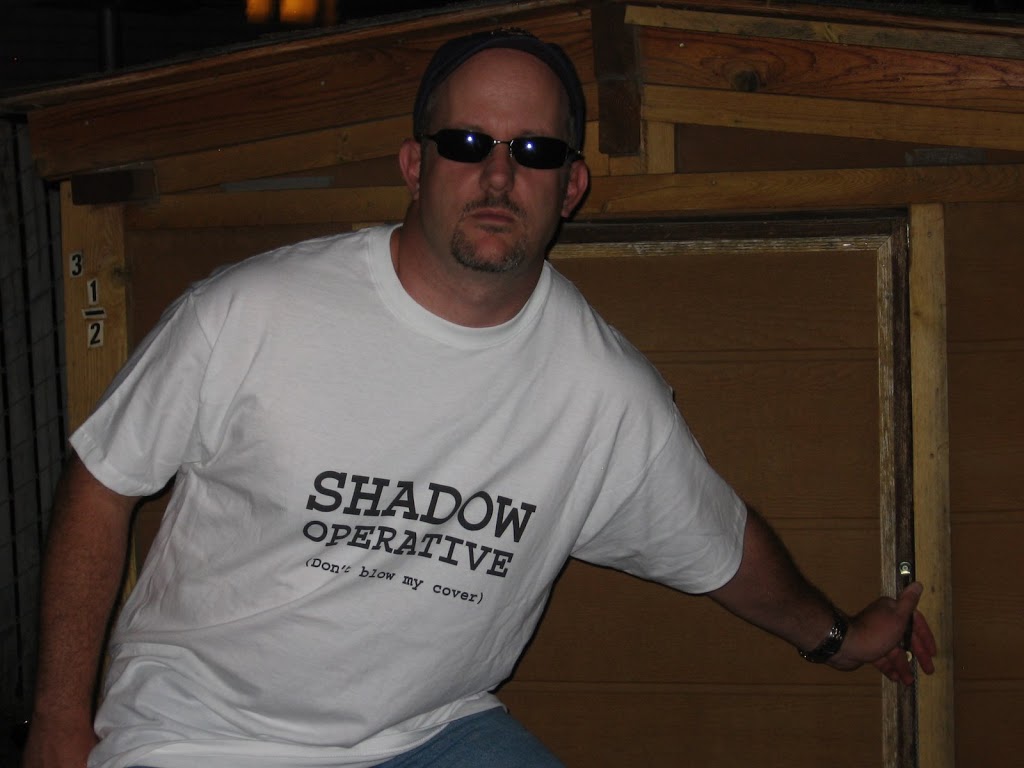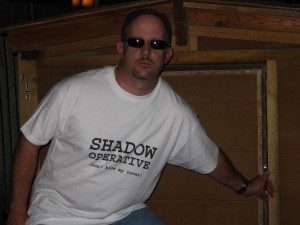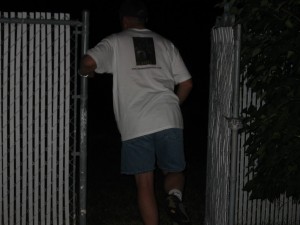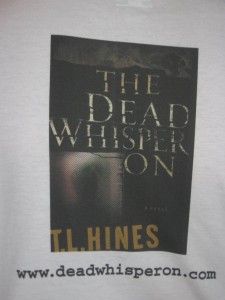by Jason Joyner | Aug 21, 2007 | Blog, CSFF, fiction, reading, reviews, writing craft
Again, this month’s CSFF blog tour is for Legend of the Firefish. If you are looking for a unique book in Christian fiction, if you are looking for a adventurous tale to end the summer with, or if you are wondering whether to name your next child Jack Sparrow (the last one I hope is a little too out there…), then this is a book you should check out.
George Bryan Polivka has begun an ambitious and admirable tale with The Trophy Chase Trilogy, of which LotF is the first book. He has several strengths as a writer which made the book quite enjoyable.
The first thing I noticed about the book is the great description that he uses. He has a way with words that sets the atmosphere and tone for the situations in the book. Whether it is a poor village tavern, a ship fighting a gale, or a character wrestling with heart issues, Polivka has a gift for word craft and painting a visual picture with the language he chooses.
The mythology of the story’s world is strong as well. He skillfully builds the setting of sea craft. His characterization of the titular Firefish is a masterful touch, making the wily prey more than just a prize for a fisherman’s net. I really enjoyed these sections in the book.
The heroes of the story, Packer and Panna, have faith yet are flawed. They do not have all the answers, and they end up in some desperate situations. Their faith does not come across as a tack-on just for the CBA, but it is a real part of their character, and their responses are mostly very much in line with this.
The antagonist Talon is a delicious literary creation. Her palpable evil makes her a very strong opponent, one that seems impossible for the heroes to overcome. This always makes for a good obstacle for the protagonists, but there is a depth to her that is revealed throughout the story that makes her character all the richer. The pirate captain Scat Wilkins is also a very well thought out character in the story. He doesn’t become one dimensional (like Cap’n Sparrow in the last 2 Pirates movies), but confounds the reader through the book.
One final thought is that this is a very strong Christian novel. In that I mean that God and faith features very prominently. A lot of the conflict is internal conflict of God vs. man – trying to live to the ideals of a faith and not always succeeding. It seems that the world of Christian fiction is shifting. It used to be a critique that Christian fiction was “preachy,” and that this stigma kept people from enjoying these novels. I’ve noticed a backlash, in that books have been published lately without a lot of overt mention of God or the type of spiritual wrestling that is shown in Firefish. This is not necessarily a bad thing. The last CSFF book, Fearless, has no overt Christianity, and the author Robin Parrish admits that he is not writing to the standard CBA reader and has different goals with his writing. Polivka obviously has his own goals, and I applaud him. He does not hold back – he writes it as he sees it and I think it is in service to the story, not tacked on as preaching (for the most part). I was encouraged by his bold declarations of faith, and found it totally appropriate for this story.
Again, my opinion is that this is an enjoyable read, an unique book in the CBA currently, and well worth the time and investment. Yet there were a couple of things in the book that I wrestled with, and I want to discuss tomorrow. These issues play into some writing blog conversations from the last week, so come back tomorrow and I’ll tie these together and we can work out together whether these “weaknesses” of LotF really are such.
Trish Anderson Brandon Barr Wayne Thomas Batson Jim Black Justin Boyer Grace Bridges Amy Browning Jackie Castle Valerie Comer Karri Compton Frank Creed Lisa Cromwell CSFF Blog Tour Gene Curtis D. G. D. Davidson Merrie Destefano Jeff Draper April Erwin Beth Goddard Marcus Goodyear Russell Griffith Jill Hart Katie Hart Sherrie Hibbs Christopher Hopper Kait Karen Dawn King Tina Kulesa Lost Genre Guild Terri Main Rachel Marks Karen McSpadden Rebecca LuElla Miller Eve Nielsen John W. Otte John Ottinger Lyn Perry Deena Peterson Rachelle Cheryl Russel Hanna Sandvig Chawna Schroeder Mirtika Schultz James Somers Steve Trower Speculative Faith Jason Waguespac Daniel I. Weaver
by Jason Joyner | Aug 14, 2007 | Blog, fiction, reading, writing craft
So I sit at my keyboard and pretend I’m an author. I sometimes have time to write, and even then I don’t always get a lot of writing done. It is so much easier to visit blogs (see last post) than to be pounding out meaningful words.
However, in my thought life I have a whole story bandying about, working itself over and over through the details. I think Randy Ingermanson is the one who called this composting. In my mind I see my main character in her journeys, struggling to cope with all the conflict that I’m (hopefully) throwing at her to make life interesting for her. I really do have a lot, if not most of the book in my head ready to make the leap to paper, if only my brain wasn’t so clumsy at getting my words right.
When you’ve spent a lot of time with someone, and you think you know them, you want to stick up for them. Well, what happens if someone doesn’t see things the way you do?
I recently had a friend read a few chapters of my work in progress. She very thoughtfully gave some feedback, and it was greatly appreciated. I asked her about characterization, and she gave her opinion.
She had a different viewpoint of my protagonist than what was bouncing around in my head.
How did that happen? That’s not supposed to happen, right? The author is in full control of the process, and the end result should be predictable.
The answer to the last statement is no, for two reasons.
I’m not going to go into #1, which is the characters need to speak for themselves. I’ll just share, like many other writers will tell you, that sometimes the characters will rebel over what you as the author had planned, and demand their own way. Y’all can chuckle about my psychiatric health if you want, but it’s true.
Number 2 would be that everyone is going to see things in their own way. I don’t fully agree with Obi-Wan Kenobi’s statement to Luke Skywalker in Return of the Jedi that things depend on “a certain point of view”. That smacks of relativism. But when it comes to reading, all the author can do is prevent their vision of a story, a character, or whatever. That is only half of the story.
The other half is how the reader interprets things. I can’t be in control of that. Not unless I want to write a very boring story that spells out every little nuance I want for the tale.
It makes you feel vulnerable as a writer, almost exposed when you put yourself out there like that. I had Jenna Dawson wrapped up in my comfortable little mental movie, but in real life she may play differently.
Some of this does come from my skill as a writer. I know that I can do a better job in bringing out what is in my head. Thus the blogging and reading so much: to grow as a writer in understanding and ability. Hopefully when I have the time to put fingers to keyboard I’ll be farther along.
It’s just interesting having something like this exposed.
by Jason Joyner | Aug 14, 2007 | Blog, fiction, reading, writing craft
So I sit at my keyboard and pretend I’m an author. I sometimes have time to write, and even then I don’t always get a lot of writing done. It is so much easier to visit blogs (see last post) than to be pounding out meaningful words.
However, in my thought life I have a whole story bandying about, working itself over and over through the details. I think Randy Ingermanson is the one who called this composting. In my mind I see my main character in her journeys, struggling to cope with all the conflict that I’m (hopefully) throwing at her to make life interesting for her. I really do have a lot, if not most of the book in my head ready to make the leap to paper, if only my brain wasn’t so clumsy at getting my words right.
When you’ve spent a lot of time with someone, and you think you know them, you want to stick up for them. Well, what happens if someone doesn’t see things the way you do?
I recently had a friend read a few chapters of my work in progress. She very thoughtfully gave some feedback, and it was greatly appreciated. I asked her about characterization, and she gave her opinion.
She had a different viewpoint of my protagonist than what was bouncing around in my head.
How did that happen? That’s not supposed to happen, right? The author is in full control of the process, and the end result should be predictable.
The answer to the last statement is no, for two reasons.
I’m not going to go into #1, which is the characters need to speak for themselves. I’ll just share, like many other writers will tell you, that sometimes the characters will rebel over what you as the author had planned, and demand their own way. Y’all can chuckle about my psychiatric health if you want, but it’s true.
Number 2 would be that everyone is going to see things in their own way. I don’t fully agree with Obi-Wan Kenobi’s statement to Luke Skywalker in Return of the Jedi that things depend on “a certain point of view”. That smacks of relativism. But when it comes to reading, all the author can do is prevent their vision of a story, a character, or whatever. That is only half of the story.
The other half is how the reader interprets things. I can’t be in control of that. Not unless I want to write a very boring story that spells out every little nuance I want for the tale.
It makes you feel vulnerable as a writer, almost exposed when you put yourself out there like that. I had Jenna Dawson wrapped up in my comfortable little mental movie, but in real life she may play differently.
Some of this does come from my skill as a writer. I know that I can do a better job in bringing out what is in my head. Thus the blogging and reading so much: to grow as a writer in understanding and ability. Hopefully when I have the time to put fingers to keyboard I’ll be farther along.
It’s just interesting having something like this exposed.

by Jason Joyner | Aug 13, 2007 | Blog, books, conspiracy, fiction, reading, TL Hines
I have an IMPORTANT update regarding the Shadow Operatives that I blogged about here. Last night I caught this shocking event on my trusty camera. Yes, that is a Shadow Operative trying to infiltrate my backyard.
If there is any doubt, I used image enhancement to show the front of his T-shirt:

The cowardly operative quickly fled the scene:

However, I again was able to use imaging enhancement to discern what was written on the back of his uniform:

There seems to be a internet site (The Dead Whisper On ) dedicated to this new book by TL Hines. You can find more about it here.
Please, keep a careful eye out. I thought this phenomenon was limited to Butte, Montana, but as this highly convincing photographic evidence shows, the infiltration has reached AT LEAST southeast Idaho.
Who knows what may be planned next?

by Jason Joyner | Aug 13, 2007 | Blog, books, conspiracy, fiction, reading, TL Hines
I have an IMPORTANT update regarding the Shadow Operatives that I blogged about here. Last night I caught this shocking event on my trusty camera. Yes, that is a Shadow Operative trying to infiltrate my backyard.
If there is any doubt, I used image enhancement to show the front of his T-shirt:

The cowardly operative quickly fled the scene:

However, I again was able to use imaging enhancement to discern what was written on the back of his uniform:

There seems to be a internet site (The Dead Whisper On ) dedicated to this new book by TL Hines. You can find more about it here.
Please, keep a careful eye out. I thought this phenomenon was limited to Butte, Montana, but as this highly convincing photographic evidence shows, the infiltration has reached AT LEAST southeast Idaho.
Who knows what may be planned next?
by Jason Joyner | Aug 1, 2007 | Blog, books, fiction, non-fiction, reading
My wife homeschools our two older boys. Of course this means mailing lists! How these people find out about you, I don’t know, but in no time we were receiving catalogs and whatnot related to homeschooling and curriculum.
I just got one catalog from Memoria Press called The Classical Teacher. It pushes classical education like Latin and rhetoric. What was interesting was a little article inside by Martin Cothran called “Is Fiction False?”
He discusses the idea that we can’t take all of our information in by just rational/logical means. He argues that fiction not only can speak to the head, but to the heart. A story can put a truth in a context and see how it works out.
A good quote from the article:
I have a friend who regularly asks me to recommend books for him to read. And among the books I recommend are a good dose of fiction, mostly novels. His response is always the same: a grimace, followed by the declaration, “Is that fiction? I just don’t read much fiction.” My rebuttal has become equally predictable: “Yes, I understand,” I say. “In fact, I’m thinking of only breathing out of one lung from now on.” Or: “I’m wondering why I need two eyes: I’m thinking of just putting one out.” He gets the message: you only limit your understanding if you limit yourself to expository or argumentative writing.
Good thoughts. We can know information, but we don’t necessarily know something. “”…By merely assenting to a proposition about something, we have understood it.” When fiction places a concept into a situation and sees how it works outside in an experiential realm, we can be more fully impacted by the concept.
So go read some good fiction before the summer days slip away.
Currently reading: (3 non-fiction and 3 fiction)
Authentic Parenting in a Postmodern Culture
Intercessory Prayer
It Takes a Church to Raise a Christian
The Legend of the Firefish
Return of the Guardian King
Shivering World




